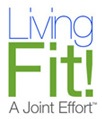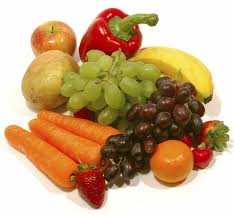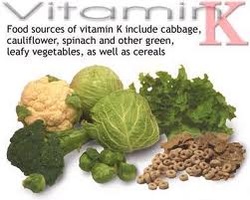Living Fit! A Joint Effort™

Living Fit! A Joint Effort™ is a program
that helps young people with hemophilia A get active and live fit.
Fitness and healthy eating are especially important to people with
hemophilia because strong muscles and a lower body weight may help
improve and maintain joint health.
Nutrition

To use vitamin and mineral supplements or not to use them – it’s a
question of special concern to people with hemophilia. Nutritional
imbalances can interfere with the blood clotting process under normal
circumstances, so individuals with hemophilia should be particularly
cautious.
For instance, a high intake of omega-3 polyunsaturated fatty acids may have increased risk of bleeding. Vitamin E can act as an anticoagulant and may increase the risk of bleeding problems. This is especially relevant with excessive intake of Vitamin E, usually from high-dose supplements of greater than 1000 IU/day.
For instance, a high intake of omega-3 polyunsaturated fatty acids may have increased risk of bleeding. Vitamin E can act as an anticoagulant and may increase the risk of bleeding problems. This is especially relevant with excessive intake of Vitamin E, usually from high-dose supplements of greater than 1000 IU/day.
Unlike drugs and food additives (which must
undergo clinical studies before being approved and allowed on the
market) dietary supplements are not required to be tested for safety.
Effectiveness may vary, and there is often no scientific proof that the
supplement can even live up to the claims made. Labeling is not
standardized, so the active ingredient, dose, side effects, or drug
interactions may not be listed on the supplement package.
For individuals with hemophilia who choose to use an iron supplement, be sure to read the labels and select a supplement that lists the source of iron as ferrous sulfate or ferrous gluconate, rather than ferric iron, as these are better absorbed. Consume fruits and vegetable – foods rich in vitamin C to enhance the body's ability to absorb iron.
For individuals with hemophilia who choose to use an iron supplement, be sure to read the labels and select a supplement that lists the source of iron as ferrous sulfate or ferrous gluconate, rather than ferric iron, as these are better absorbed. Consume fruits and vegetable – foods rich in vitamin C to enhance the body's ability to absorb iron.
Vitamin K-Rich Foods
Foods rich in vitamin K can help platelets function properly. Vitamin K plays an essential role in platelet function and blood coagulation, helping to regulate the enzymes required for blood clot formation. The Linus Pauling Institute at Oregon State University explains that vitamin K helps activate seven proteins involved in the clotting cascade. Foods rich in vitamin K include leafy greens like lettuce and parsley, olive, soybean and canola oils as well as cruciferous vegetables like broccoli, kale and Swiss chard.
Foods rich in vitamin K can help platelets function properly. Vitamin K plays an essential role in platelet function and blood coagulation, helping to regulate the enzymes required for blood clot formation. The Linus Pauling Institute at Oregon State University explains that vitamin K helps activate seven proteins involved in the clotting cascade. Foods rich in vitamin K include leafy greens like lettuce and parsley, olive, soybean and canola oils as well as cruciferous vegetables like broccoli, kale and Swiss chard.
The USDA recommends eating plenty of grains, fruits, and vegetables,
eating a diet low in fats, sugar, salt (sodium), and cholesterol.
Balancing food intake with physical activity helps in the maintenance of an optimal body weight.
Balancing food intake with physical activity helps in the maintenance of an optimal body weight.
BEWARE!
Foods To Avoid
from www.thereforyou.com
If you or a loved one has hemophilia, avoid supplements that might adversely affect bleeding and clotting times, such as:
- Ginseng
- Gingko Biloba
- Bromelain
- Flaxseed
- Garlic
- Ginger
- Bilberry fruit
- Black cohosh
- Cat's claw
- Feverfew
- Pau d'arco
Maintain Healthy Weight
Increased weight strains your joints and muscles, and can lead to
further complications, including increased bleeds in susceptible joints.
RECOMMENDATIONS
Food Recommendation from www.organichealthandbeauty.com
- Vitamin K, Calcium, Magnesium, Vitamin C, and Vitamin B complex are all essential for normal blood coagulation, formation, and clotting. We suggest a high quality whole food supplement, like VITAFORCE™ that is complete and made from whole foods.
- Juicing is also very important for Hemophilia because it is likened to a blood transfusion. Carrots, beet greens and beets juiced together have all the necessary nutrient components to increase hemoglobin and red blood cell count. Also juice dark green, leafy vegetables (i.e. kale, spinach, parsley, dandelion greens, etc.).
Things to Avoid:
- All Animal Foods: dairy foods (milk, cheese, butter, cream, ice cream), fish, meat, chicken, turkey, eggs, fried and greasy foods, margarine, and all other processed foods and animal derived products from your diet. These foods are laced with chemicals, pesticides, and toxins as well as high levels of saturated fats which have a very damaging a draining effect on the body.
- Salt, tobacco, caffeine, sodas, coffee, sugar, and refined white flour (breads, pastas, cereals- replace with whole wheat pastas, breads, and cereals). These products are extraordinarily destructive to the body.
References:
James F. Balch, M.D, Phyllis A. Balch, C.N.C, "Prescription for Nutritional Healing," (1997)
EAT HEALTHY!
Be aware of portion sizes, read labels and avoid snack foods.
Steer clear of foods that are high in fat and calories and offer little
in the way of nutritional value. Be mindful of “hidden” or overlooked
sources of excess calories, such as large glasses of juice and soft
drinks.
Increase your consumption of fruits and vegetables. Dark, leafy greens and orange fruits and vegetables are excellent sources of vitamins and minerals. They are also a rich source of fiber, which helps you to “fill up” and maintain intestinal health.
Try to eat at least half of your grains from whole grain products. Try oats, barley, whole wheat, flax seed, bran, brown rice and pasta. Whole grains help to satiate the appetite, lower cholesterol and stabilize blood glucose levels to avoid an afternoon “slump.” Eat baked snack items instead of fried.
Use low-fat dairy sources such as 1% or skim milk and low-fat cheeses. These contain plenty of vitamins and minerals without the fats that have been linked to heart disease. (If you cannot consume milk, look for other sources of calcium, such as calcium-fortified orange juice.)
Bake, broil or grill lean meats, poultry and fish. Avoid heavy gravies, sauces and toppings that are often full of calories from fat. Include some meatless meals during the week by incorporating dried beans, nuts and seeds into your menus. Dried beans provide an excellent source of protein, and are high in fiber and low in fat, with no cholesterol. (Cholesterol is found only in animal-derived food sources, such as meats, eggs and milk.)
Reduce fat intake and increase the use of “good fats.” These include olive and canola oils. Limit the use of butter, stick margarine, shortening and lard.
Increase your consumption of fruits and vegetables. Dark, leafy greens and orange fruits and vegetables are excellent sources of vitamins and minerals. They are also a rich source of fiber, which helps you to “fill up” and maintain intestinal health.
Try to eat at least half of your grains from whole grain products. Try oats, barley, whole wheat, flax seed, bran, brown rice and pasta. Whole grains help to satiate the appetite, lower cholesterol and stabilize blood glucose levels to avoid an afternoon “slump.” Eat baked snack items instead of fried.
Use low-fat dairy sources such as 1% or skim milk and low-fat cheeses. These contain plenty of vitamins and minerals without the fats that have been linked to heart disease. (If you cannot consume milk, look for other sources of calcium, such as calcium-fortified orange juice.)
Bake, broil or grill lean meats, poultry and fish. Avoid heavy gravies, sauces and toppings that are often full of calories from fat. Include some meatless meals during the week by incorporating dried beans, nuts and seeds into your menus. Dried beans provide an excellent source of protein, and are high in fiber and low in fat, with no cholesterol. (Cholesterol is found only in animal-derived food sources, such as meats, eggs and milk.)
Reduce fat intake and increase the use of “good fats.” These include olive and canola oils. Limit the use of butter, stick margarine, shortening and lard.
Note: www.HemophiliaPrince.com does not recommend a particular
treatment for specific individuals and recommends that you consult your
treatment center or physician before pursuing any course of treatment. Consult with your physician before taking any dietary supplements.



